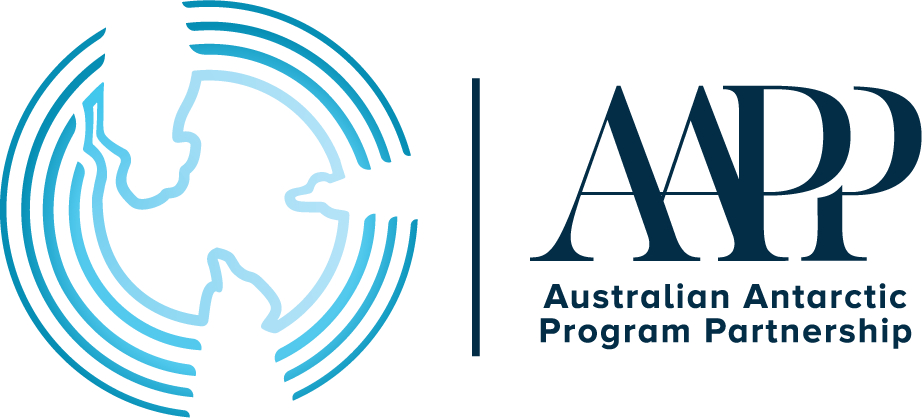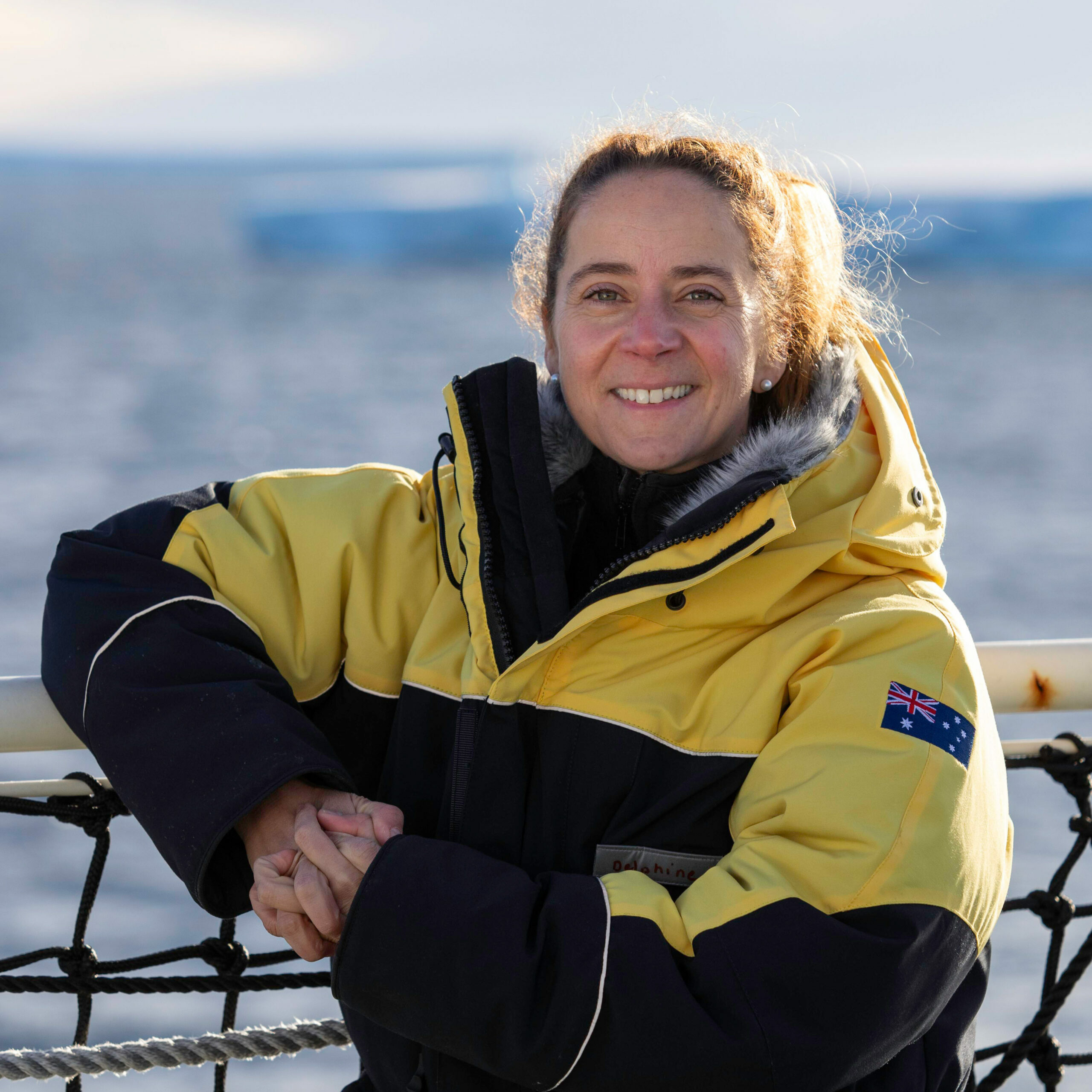
Current AAPP Activities:
As Program Leader for the AAPP, Professor Lannuzel drives delivery of the AAPP’s research program, including alignment of the AAPP with the Australian Antarctic science program.
The core mission of the AAPP is to:
- support research that aims to understand the role of the Antarctic region in the global climate system and the implications on marine ecosystems;
- enable the AAPP to undertake collaborative science, research and innovation activities under the Australian Antarctic Science Strategic Plan and Australian Antarctic Strategy and 20 Year Action Plan; and
- secure Antarctic science jobs in Hobart
Biography
Delphine was awarded her PhD in 2006 at Université Libre de Bruxelles upon presentation of a thesis on “The Biogeochemistry of Iron in the Antarctic sea ice Environment”. She was the first to report the high iron concentration in Antarctic pack ice compared to ice-free waters, therefore highlighting the role of sea ice as a seasonal ocean fertilizer. She has since produced the large majority of the results on trace metals in sea ice and is unequivocally at the forefront of this research nationally and internationally. Delphine has expanded her interest towards ice shelf – ocean interactions, as well as biogeochemical modelling.
Delphine published over 60 papers in high-ranking peer review journals, 12 as a lead-author. Her articles have received over 4,000 citations, and her h-index is 32 (source: Google Scholar, 15 May 2021). Her publication output provides evidence for the research excellence she has developed on her own as well as through new and ongoing collaborations with top-echelon researchers from the fields of glaciology, marine chemistry, marine biology, analytical chemistry, modeling and atmospheric sciences. Delphine has led several research and Antarctic-based field projects since the end of her PhD.
The awards, fellowships and honors received from her peers within the five years following the award of her PhD undoubtedly acknowledge her early commitment to achieve research excellence. She has secured and managed her own funding since her first ARC grant in 2008, with back-to-back ARC APD (2008-2011), ARC DECRA (2012-2016) and ARC Future (2020-2024) Fellowships. Delphine’s current ARC Future Fellowship aims at assessing the role of the cryosphere as an ocean fertiliser.
Between 2016 and 2020, Delphine held a lecturing position at IMAS, which also included managerial roles like Graduate Research Coordinator and Deputy Centre Head for Oceans & Cryosphere. She also led AAPP between 2019 and 2020. She was the UTAS deputy director for ACEAS (2021-2025), and the ACEAS science coordinator for the Denman Marine Voyage.
Scientific Committee Memberships
Steering committee member to BEPSII ("Biogeochemical Exchange Processes at Sea-Ice Interfaces"), since 2014
Steering committee member for the Southern Ocean Observing System, since 2020
Awards / Grants
Thomson Reuters Citation Award Winner, 2016
ARC DECRA, 2012
Recipient of the University of Tasmania Vice Chancellor Award for Research Excellence, 2011
ARC APD Fellowship, 2009
Selected Publications
The future of Arctic sea-ice biogeochemistry and ice-associated ecosystems. Nature Climate Change 10, 983–992 https://doi.org/10.1038/s41558-020-00940-4
Lannuzel D, Vancoppenolle M, van der Merwe P, de Jong J, Grotti M, Nishioka J, Meiners K, Schoemann V, 2016. Iron in sea ice: review and new insights, Elem Sci Anth4: 000130.DOI: http://dx.doi.org/10.12952/journal.elementa000130
Herraiz-Borreguero L, Lannuzel D, Treverrow A, van der Merwe P and Pedro J, (2016) Contribution of marine ice iron to the fertilization of Prydz Bay, East Antarctica, Journal of Geophysical Research – Oceans, 121 (8), doi:1002/2016JC011687
Lannuzel D., Grotti M, and van der Merwe P. (2015) Organic ligands control the concentrations of dissolved iron in Antarctic sea ice, Marine Chemistry, 174, 120-130
Duprat L., Corkill M., Genovese C., Townsend A. T., Meiners K.M., and Lannuzel D. (2020). Nutrient distribution in East Antarctic summer sea ice: a potential iron contribution from glacial basal melt. Journal of Geophysical Research – Oceans, 125(12), e2020JC016130
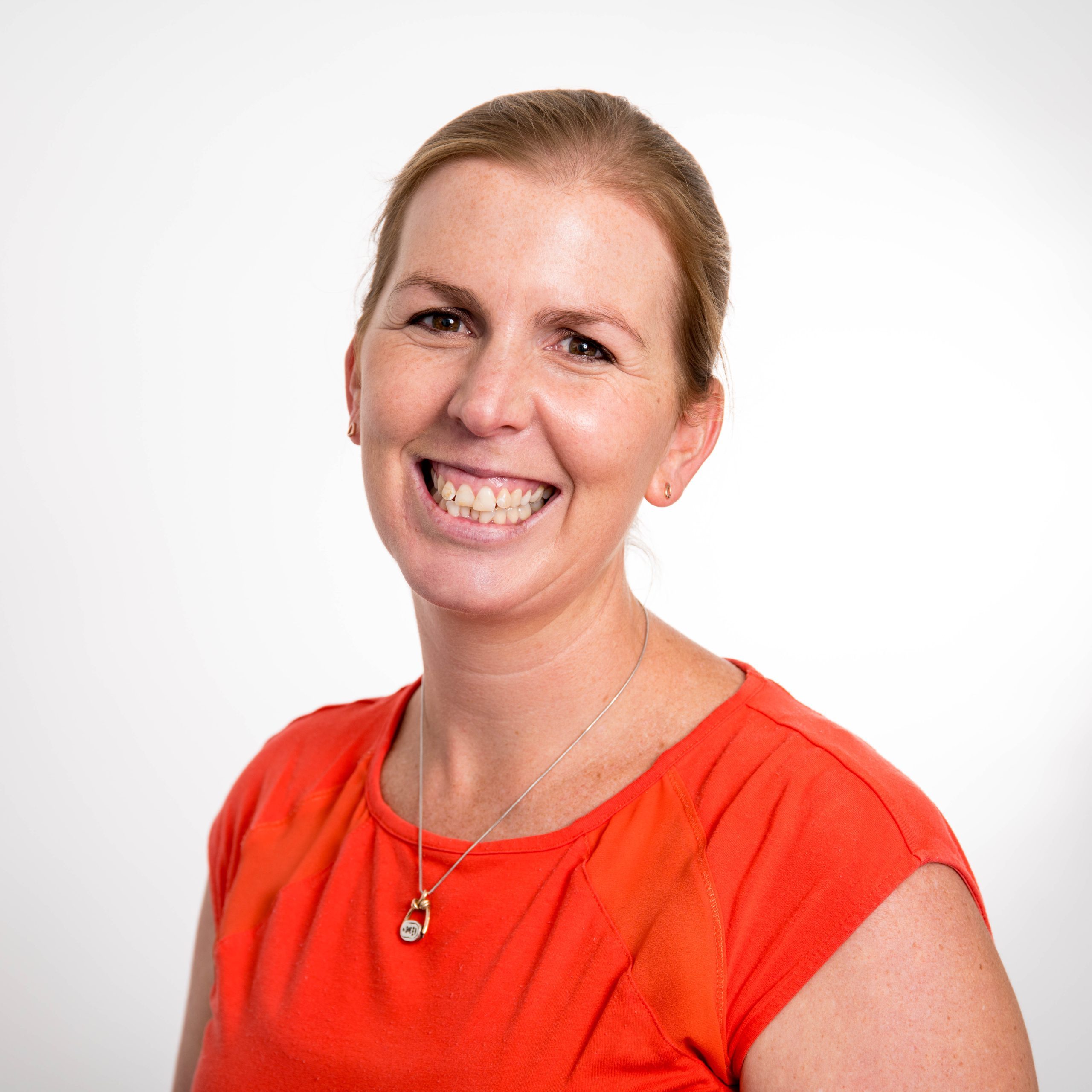
ANDREA ELLSTON
Business Manager
Current AAPP Activities:
I joined AAPP in mid-2023 and am excited by the opportunity of working within an area of research strength for the University of Tasmania. I am passionate about using my experience to support staff and partners and contribute to the objectives of the AAPP.
Most recently I supported higher degree by research candidates and university academics as part of my roles in the University of Tasmania’s Research Division. Over my six years in the Graduate Research Office I spent the majority as Quality Assurance and Scholarships Advisor where I managed the University’s higher degree by research scholarship portfolio, including Research Training Program scholarships and Tasmania Graduate Research Scholarships. I also led the Candidature Management team in its support of candidates and researchers during the period from a candidate’s enrolment to graduation.
Current AAPP Activities:
I joined AAPP in mid-2023 and am excited by the opportunity of working within an area of research strength for the University of Tasmania. I am passionate about using my experience to support staff and partners and contribute to the objectives of the AAPP.
Biography
I commenced my career in tertiary education management at the University of Wollongong in 2004. My first roles were in the Academic Registrar’s Division administering the university’s offshore education contracts and working with the University’s campus in Dubai.
I returned to Hobart in 2007 to join the University of Tasmania as the International Fees Officer and spent a number of years managing fee debt compliance for coursework and higher degree by research candidates and working as secretariat to the International Fees Committee.
Following this, I spent over seven years working in the University’s international portfolio, in the Transnational Education Unit followed by Global Engagement. During this time I contributed to the advancement of the University’s international partnerships including preparations for outgoing international missions and incoming delegation visits, including hosting the University’s key partners for its 125-year celebrations.
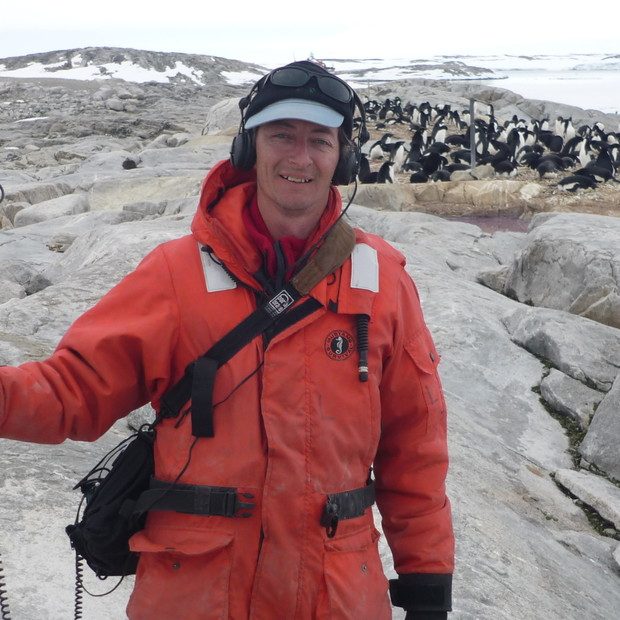
MARK HORSTMAN
Communication and Impact Manager
Current AAPP Activities:
My role at the AAPP is to develop, implement and manage our plans for communications and stakeholder engagement, and build a framework and database for tracking and developing our research impacts. I organise media events; write news stories, research highlights and media releases; maintain this website and our social media accounts (join us at bluesky, YouTube and LinkedIn); and support staff in media interviews. Most of all, I like telling strong and engaging science stories in print, video or podcast that bring our scientists to the audiences they deserve.
Biography
I am an experienced science communicator and media manager, specialising in Antarctic science and policy. In recent years I led the media team at the Australian Antarctic Division, after working for more than a decade as a science journalist and documentary-maker for Radio National and ABC-TV (Catalyst). I enjoy turning complex information into engaging story-telling, drawing on a background in environmental science and wide-ranging work with funding bodies, community groups, research organisations, and government agencies.
I have a degree in biological sciences from James Cook University, vocational qualification in broadcasting, and extensive experience as a specialist science journalist. I’m reasonably fluent in the science of conservation biology, climate processes and Antarctic/Southern Ocean ecosystems; deeply familiar with Antarctic policy and operational logistics; and experienced in living and working at sea on RSV Nuyina and on all Australian research stations.
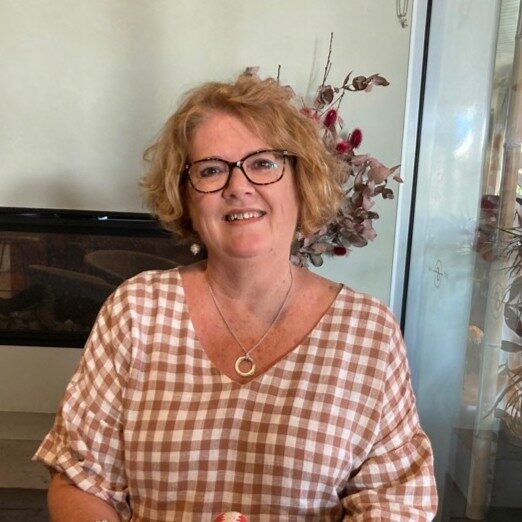
LISA PERRY
Administration Officer
Current AAPP Activities:
I joined the AAPP Admin Office in mid-2024 after gaining experience in UTAS Business and Economics School. To be working in such a positive and passionate environment on the beautiful Hobart waterfront makes coming to work each day a pleasant experience, with the shift of focus from teaching and learning to research an interesting change for me.
My most recent experience prior to UTAS was seven years at the University of Queensland in the School of Psychology, working closely in an administrative and wellbeing support role with undergraduate students.
I have a keen interest in Health and Safety as prior to my university career I was the Queensland Safety Manager for a large retailer servicing over 80 stores in the northern part of Australia.
Supporting the work of the AAPP team and learning something new every day about Antarctica is more than interesting.
